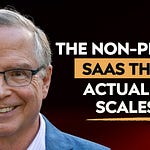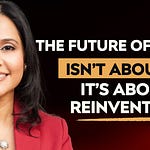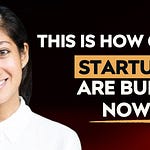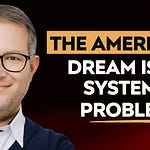In this episode of the Ignite Podcast, host Brian Bell sat down with Bradley Tusk, a man who wears many hats: venture capitalist, political strategist, author, and philanthropist. Known as Silicon Valley's "political savior" and Uber's "political genius," Tusk has carved out a unique niche at the intersection of technology, venture capital, and politics. This blog post delves into the key insights from their conversation, exploring how Tusk leverages regulatory hurdles as opportunities for startups and his visionary approach to democracy and emerging technologies like AI.
From Political Operative to Venture Capital Visionary
Bradley Tusk's journey is anything but conventional. Before entering the world of venture capital, he had a distinguished career in politics. He served as the campaign manager for Michael Bloomberg's successful run for mayor of New York City and later became the deputy governor of Illinois, overseeing the state's budget, operations, and communications. His political acumen was further honed during his time as Senator Chuck Schumer's communications director.
His foray into venture capital began serendipitously in 2011 when he was approached to assist a small transportation startup facing regulatory challenges. That startup was Uber. Unable to afford his consulting fee, Uber offered Tusk equity instead—a decision that would significantly impact his career trajectory. Recognizing the untapped potential of merging political strategy with venture investing, he founded Tusk Venture Partners, the first VC firm focused exclusively on startups in highly regulated industries.
A Dual-Lens Investment Approach
Tusk Venture Partners employs a unique investment thesis centered around two key questions:
Is there a gating regulatory issue or opportunity that, if solved, can significantly drive growth and valuation?
Can the firm effectively solve it?
This dual-lens approach combines traditional financial metrics with a deep understanding of regulatory landscapes. By focusing on startups that face significant regulatory hurdles, Tusk turns potential obstacles into competitive advantages. His firm doesn't just invest capital; it actively engages in crafting and executing political strategies to overcome regulatory barriers.
For example, Tusk played a pivotal role in Uber's expansion by orchestrating campaigns to legalize ride-sharing services across the United States. By mobilizing customers as political advocates through the Uber app, he successfully navigated complex regulatory environments. This strategy was replicated with other portfolio companies like FanDuel and Lemonade, where regulatory challenges were transformed into growth opportunities.
Mobilizing Millions: The Power of Political Advocacy
One of the standout stories from the podcast is the battle against New York City Mayor Bill de Blasio's attempt to limit Uber's operations. De Blasio, backed by the taxi industry, sought to cap Uber's growth. Tusk devised a multi-faceted strategy that reframed the issue as one of racial and economic justice, highlighting how Uber provided opportunities for immigrant drivers and reliable transportation options for underserved communities.
By introducing a "De Blasio" mode in the Uber app, users could see how long wait times would become if the cap were implemented. This feature prompted tens of thousands of New Yorkers to voice their opposition directly to city officials. The aggressive campaign not only halted the proposed cap but also set a precedent that discouraged other cities from pursuing similar restrictions.
This approach underscores Tusk's belief that mobilizing a company's customer base can be a powerful tool in influencing policy. It also illustrates how understanding the political incentives and language of elected officials is crucial for startups navigating regulatory challenges.
Revolutionizing Democracy with Mobile Voting
Beyond his work in venture capital, Tusk is a passionate advocate for mobile voting. He argues that low voter turnout, especially in primary elections, leads to polarization because elected officials cater to the most extreme elements of their base. By making voting accessible via smartphones, he believes turnout can be significantly increased, leading to more representative and moderate governance.
Tusk's foundation has already conducted pilot programs in several states, allowing military personnel and people with disabilities to vote via mobile devices. Addressing security concerns head-on, he has invested in developing secure, open-source technology that governments can adopt. The mobile voting system includes multi-factor authentication, facial recognition, and provides voters with a tracking code to monitor their ballot.
He envisions a future where higher voter turnout disrupts the stranglehold of extreme partisanship, potentially leading to more centrist policies and even the emergence of additional political parties. This initiative reflects his broader philosophy of leveraging technology to solve systemic problems.
Navigating the Future: AI and Regulation
The conversation also touched on the burgeoning field of artificial intelligence and its regulatory implications. Tusk emphasizes the importance of proactive regulation that fosters innovation while safeguarding society. He expresses concern over the government's historical failure to regulate social media platforms effectively, leading to societal issues like misinformation and mental health crises.
In the realm of AI, Tusk advocates for balanced frameworks that include safety testing and accountability measures. He is particularly interested in areas where AI intersects with regulation, such as data integrity, professional licensing, and government procurement processes. His firm is exploring investments in startups that can build regulatory moats in AI, turning compliance into a competitive advantage.
Key Takeaways for Founders and Investors
Regulation as a Moat: Instead of viewing regulation solely as a barrier, consider how it can be leveraged to create a competitive advantage.
Understand Political Incentives: Successful navigation of regulatory landscapes requires speaking the language of politicians and aligning with their incentives.
Mobilize Your Base: Customers can be powerful advocates. Engaging them in your regulatory strategy can influence policy outcomes.
Proactive Compliance: Especially in emerging fields like AI, being ahead of regulatory requirements can position a company as a leader and set industry standards.
Technological Solutions for Systemic Problems: Innovations like mobile voting demonstrate how technology can address fundamental societal issues.
Conclusion
Bradley Tusk's unique blend of political savvy and venture investing offers invaluable insights into how startups can navigate and even capitalize on regulatory challenges. His work underscores the potential for technology not just to disrupt markets but to transform society positively. For founders and investors alike, understanding the interplay between regulation and innovation is more critical than ever.
👂🎧 Watch, listen, and follow on your favorite platform: https://tr.ee/S2ayrbx_fL
🙏 Join the conversation on your favorite social network: https://linktr.ee/theignitepodcast
Chapters:
Introduction to Bradley Tusk & Tusk Venture Partners (00:01:44 – 02:29)
Bradley’s Journey: From Politics to Venture Capital (02:30 – 05:09)
The Uber Story: Advocacy and Equity Payoff (05:10 – 10:19)
Crafting an Investment Thesis: Regulation as Opportunity (10:20 – 13:49)
Mobilizing Millions: Regulatory Battles Won (13:50 – 19:39)
Revolutionizing Democracy with Mobile Voting (19:40 – 25:29)
Navigating AI Regulation and Future Opportunities (25:30 – 31:09)
Lessons for Founders: Tackling Regulatory Challenges (31:10 – 36:09)
The Future of Democracy and Technology (36:10 – 43:19)
Closing Reflections & Key Takeaways (43:20 – 44:06)










